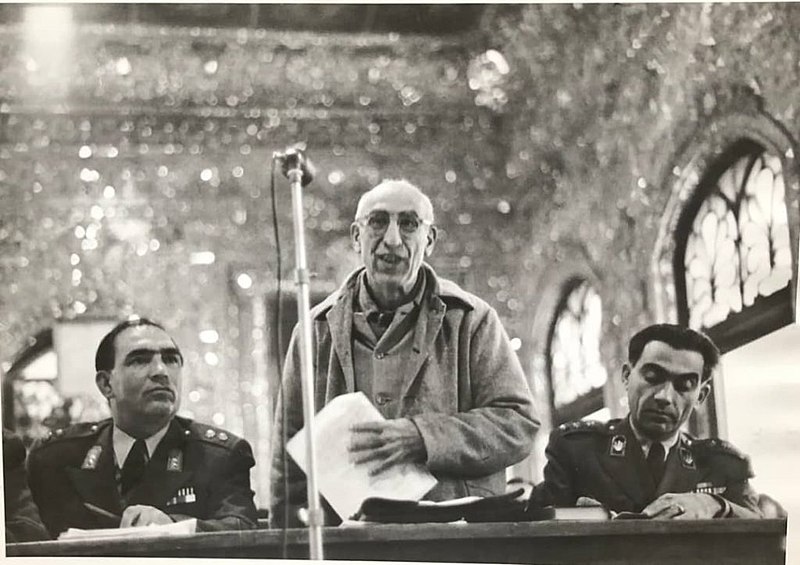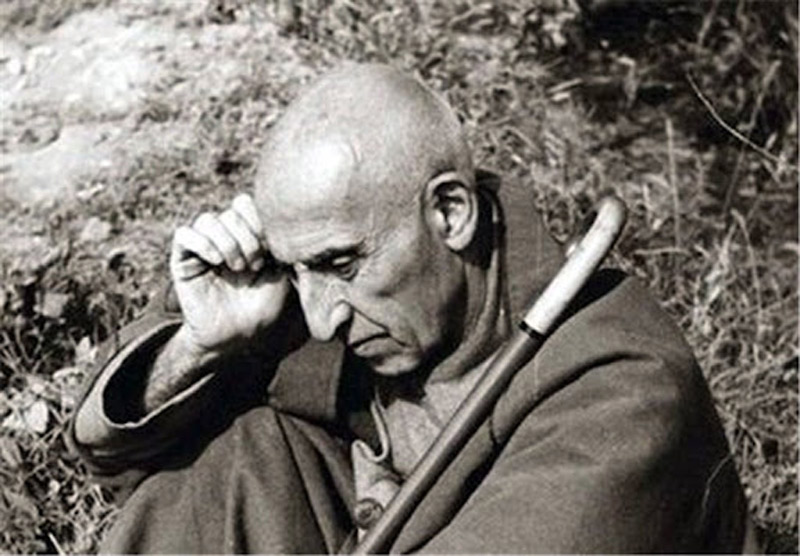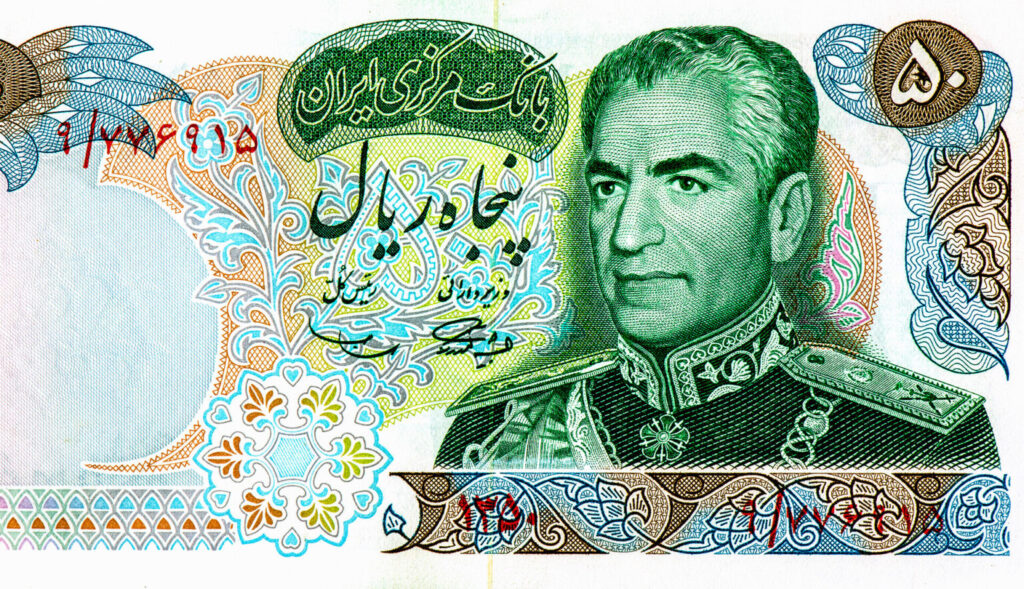The recent protests in Iran are a product of many compounding factors. It is indubitably true that women want greater freedoms. What is often left unsaid that economic pain is driving these protests. Much of this pain is caused by US sanctions against Iran.
During these protests, some have chanted slogans in favor of the Pahlavi dynasty. Sadly, these protesters do not realize that both father Reza Shah and son Mohammad Reza Shah would have shot them dead or arrested and tortured if they were in power.
In our previous article, we analyzed Mohammad Mosaddegh and the golden age of Iranian democracy. For a 12-year spell from 1941 to 1953, Iran experienced freedom, reforms and the exercise of popular sovereignty. Mosaddegh cleaned up corruption and improved the economy. He invested in health, unemployment insurance and infrastructure. Mosaddegh also initiated programs to address women’s rights. However, this Iranian statesman is most noted for leading the nationalization of the oil industry.
The British Strike Back
The British had a monopoly over Iran’s oil since its discovery in 1908. Nationalization of the oil industry made Mosaddegh their worst enemy and British agents began working to oust him. They used every possible means to undermine his policies and question his competence. They resorted to disinformation, bribery, blackmail, murder and riots.
In June 1953, the British succeeded in winning over American support by painting Mosaddegh to be a socialist. By now, the US was paranoid about the spread of communism. The British also promised Americans a share of the oil. Nationalization was also a bad precedent for other countries and went against the interests of American oil companies. The US was also disappointed that Mosaddegh did not show any interest in the formation of the Baghdad Pact, yet another anti-Soviet military alliance of the Cold War.
Hence, the US agreed with the British to launch “Operation Ajax.” Its goal: remove Mosaddegh from power. Now, the CIA dispatched one of its stars to Tehran. This swashbuckler was Kermit Roosevelt and he worked with close coordination with MI6 for regime change in Iran.
Together, the Americans and the British bribed politicians, military officers, government officials, warlords, and reporters. They also hired mobsters and hoodlums to pretend to be communists. These fake communists attacked people, broke into stores, torched buildings and used profanity as part of their shock and awe tactics to discredit Mosaddegh.
These tactics did not quite work. Mosaddegh remained wildly popular. When this Iranian statesman called for a referendum to dissolve the Majles (the Iranian parliament), he got 99% of the vote. However, the British and the Americans were infiltrating many powerful interest groups in Iran. The plot against Mosaddegh was thickening. In August 1953, even as Mosaddegh remained immensely popular, he was unaware that many of his enemies, including some in his own party, were conspiring with the British and the Americans to oust him.
One Coup Fails but the Second Succeeds
On August 16, 1953, the Shah dismissed Mosaddegh. He appointed General Fazlollah Zahedi, a CIA agent, as prime minister. Some close associates of the Shah have taken the view that this was unnecessary. Mosaddegh would have resigned had the Shah asked him to do so.
Zahedi and his cronies began arresting Mosaddegh’s top aides. Mosaddegh saw Zahedi’s appointment as a military coup and refused to step down. The prime minister summoned loyal military officers to his defense. They arrested the party Zahedi had sent to capture Mosaddegh.
The Shah fled the country and Zahedi took refuge with the CIA. The CIA-led, MI6 first coup attempt miserably failed. Mosaddegh felt so confident that he did not take the opportunity to speak to the nation about the coup. This turned out to be a historic blunder.
The CIA and MI6 did not give up. They carried on their anti-government activities and instigated violence in the streets. Fearing communist attacks, Iranians withdrew to their homes. After three days of rioting, Ayatollah Abul-Qasem Kashani reportedly warned Mosaddegh about a coup attempt to oust him. Mosaddegh dismissed the warning with his aloof reply, “I am supported by the Iranian nation.”
The very next day, large crowds suddenly appeared in the streets in support of the Shah. On this historic day of August 19, 1953, Mosaddegh was caught unawares. The second coup attempt succeeded. Zahedi came out of hiding and arrested Mosaddegh. On hearing about Mosaddegh’s fall, the then British prime minister Anthony Eden said that after a long time he finally slept well.
After the coup, Mosaddegh was put on trial as a traitor in a military court. Fearing popular reaction, Mosaddegh’s statements in his defense were all censored. Mosaddegh was sentenced to solitary confinement to begin with and then house arrest for the remainder of his life. At the age of 84, he died in 1967 while still in house arrest.

In the court, he said, “Yes, my sin – my greater sin – and even my greatest sin is that I nationalized Iran’s oil industry and discarded the system of political and economic exploitation by the world’s greatest empire…. This at the cost to myself, my family; and the risk of losing my life, my honor, and my property.” Then, he continued, “I am well aware that my fate must serve as an example in the future throughout the Middle East in breaking the chain of slavery and servitude to colonial interests.”

After the coup, the weak, narcissist and debauched Shah returned to Iran. From now on, he wielded absolute power. Tutored by US advisers, he became a cruel despot just like his father. He crushed all political movements. The opposition went underground, discontent simmered and eventually led to the 1979 Islamic Revolution.
Personal Memories and Consequences of the Coup
One of the co-authors still remembers the day of the coup. He was with his father running errands in central Tehran. At midday, everything seemed peaceful. Suddenly, all hell broke loose. People appeared in trucks chanting, “Death to Mosaddegh, long live the Shah.” The co-author’s father instinctively cursed the British for engineering this ruckus. The very next day, Iranians such as the co-author’s father, friends and family knew that the CIA and MI6 had engineered the coup because Zahedi thanked the US for its support.
In the US and in Britain, the people did not realize the role the CIA and MI6 had played for years. They assumed that organic street protests led to Mosaddegh’s fall. One co-author has been in the US since 1965. He is married to an American. He has had numerous discussions with fellow Americans who resolutely believed that the US could never do as dastardly a deed as overthrow a democratically elected government through a coup.
The US mass media took the same line as uninformed American citizens. In 2003, The New York Times supported the Iraq War. In 1953, this venerable publication supported the coup against Mosaddegh. Time Magazine went further and claimed that “this was no military coup, but a spontaneous popular uprising.”
In 2013, such claims were proved patently false. The CIA admitted that it carried out the 1953 coup with the approval of the highest levels of the US government. The British have yet to issue a mea culpa but numerous retired MI6 and CIA officers have remarked to the other co-author that this coup turned out to be a historic blunder. These officers maintain that this 1953 coup had unintended consequences and led directly to the 1979 revolution.
It turns out that the coup was planned, coordinated and directed by Cyprus-based MI6 agent Norman Darbyshire. The CIA’s Roosevelt merely executed Darbyshire’s plans. The 1953 coup was the CIA’s first exposure to covert operations that caused regime change. Since then, the CIA has replicated it in numerous other countries.
The dissolute Shah rewarded the US generously for installing him on the throne. In October 1954, Iran signed the Consortium Agreement, giving the “US, British, and French oil companies” 40% ownership of its nationalized oil industry. The management of the consortium was led by American oil companies for 25 years and many consider it to be “the largest commercial deal ever put together.”
Surprisingly, the Islamic Revolution took over the country in February 1979 about 7 months before the agreement was due to expire. In January 1979, one of the major concerns of the world leaders at the Guadeloupe summit was the flow of oil from Iran as revolution erupted in the country. The US and Britain had profited handsomely from the 1953 coup and the 1979 revolution was an unnecessary headache.
Why MI6 and the CIA Succeeded
Given Mosaddegh’s popularity, a question recurs repeatedly: why did the coup succeed?
Mosaddegh was unlucky. The communist Tudeh Party was at least as powerful as Mosaddegh’s National Front. Tudeh could have come out on the streets to prevent the unrest and the coup. However, Joseph Stalin’s death in March 1953 left Tudeh in disarray. Just as the Shah was the lackey of the West, the Tudeh Party was controlled directly by Stalin. With the Soviet strongman dead, Tudeh was rudderless and useless.
In addition to bad fortune, Mosaddegh himself was to blame. He was an idealist who could be exceedingly naïve when it came to realpolitik. Mosaddegh believed deeply in democracy but failed to realize that many of his enemies did not. When he was informed about legislators, officials and military officers plotting a coup, Mosaddegh’s reaction was to ask for proof. Naturally, such proof was hard to come, which lulled this venerable Iranian statesman into a false sense of complacency.
Mosaddegh’s championing of freedom of religion annoyed many conservatives. In particular, it strained relations with his most powerful religious and patriotic supporter Kashani. This support was crucial for Mosaddegh because Kashani commanded a powerful base that could have countered those plotting a coup. To make matters worse, Mosaddegh ignored Kashani’s warning a day before the coup.
Mosaddegh lost some of his secular supporters because they feared communism. Furthermore, some parliamentarians were upset with the prime minister for dissolving the Majles. A few switched sides and supported the coup.
Mosaddegh fatally did not seize the moment after the first coup. This attempt was reported on the radio but the prime minister did not give a public address disclosing all the facts. He did not summon the masses to his defense. Mosaddegh was a sick man during much of his premiership and, particularly, at the time of the coup. He had lost touch with the masses, key interest groups and many members of his own party. Mosaddegh also failed to realize that success today gives no guarantee of success tomorrow.
Mosaddegh was a touch too credulous in trusting the US. He expected Uncle Sam to be an honest broker between Iran and Britain. During his visit to the US, the then president Harry Truman arranged for Mosaddegh’s medical care. Relations between the US and Iran continued to be cordial even when Dwight D. Eisenhower became president.
As fear of communism rose in the US, Eisenhower turned against Iran. The sweet prospects of access to Iranian oil also facilitated this change of heart. Given the US stress on capitalism and securing oil for its energy-hungry economy, it was inevitable that Washington would look extremely unfavorably upon nationalization of the oil industry. Mosaddegh did not realize the stakes on the geopolitical chessboard and was unprepared to counter the foreign powers.
The views expressed in this article are the author’s own and do not necessarily reflect Fair Observer’s editorial policy.
Support Fair Observer
We rely on your support for our independence, diversity and quality.
For more than 10 years, Fair Observer has been free, fair and independent. No billionaire owns us, no advertisers control us. We are a reader-supported nonprofit. Unlike many other publications, we keep our content free for readers regardless of where they live or whether they can afford to pay. We have no paywalls and no ads.
In the post-truth era of fake news, echo chambers and filter bubbles, we publish a plurality of perspectives from around the world. Anyone can publish with us, but everyone goes through a rigorous editorial process. So, you get fact-checked, well-reasoned content instead of noise.
We publish 3,000+ voices from 90+ countries. We also conduct education and training programs
on subjects ranging from digital media and journalism to writing and critical thinking. This
doesn’t come cheap. Servers, editors, trainers and web developers cost
money.
Please consider supporting us on a regular basis as a recurring donor or a
sustaining member.
Will you support FO’s journalism?
We rely on your support for our independence, diversity and quality.










Comment